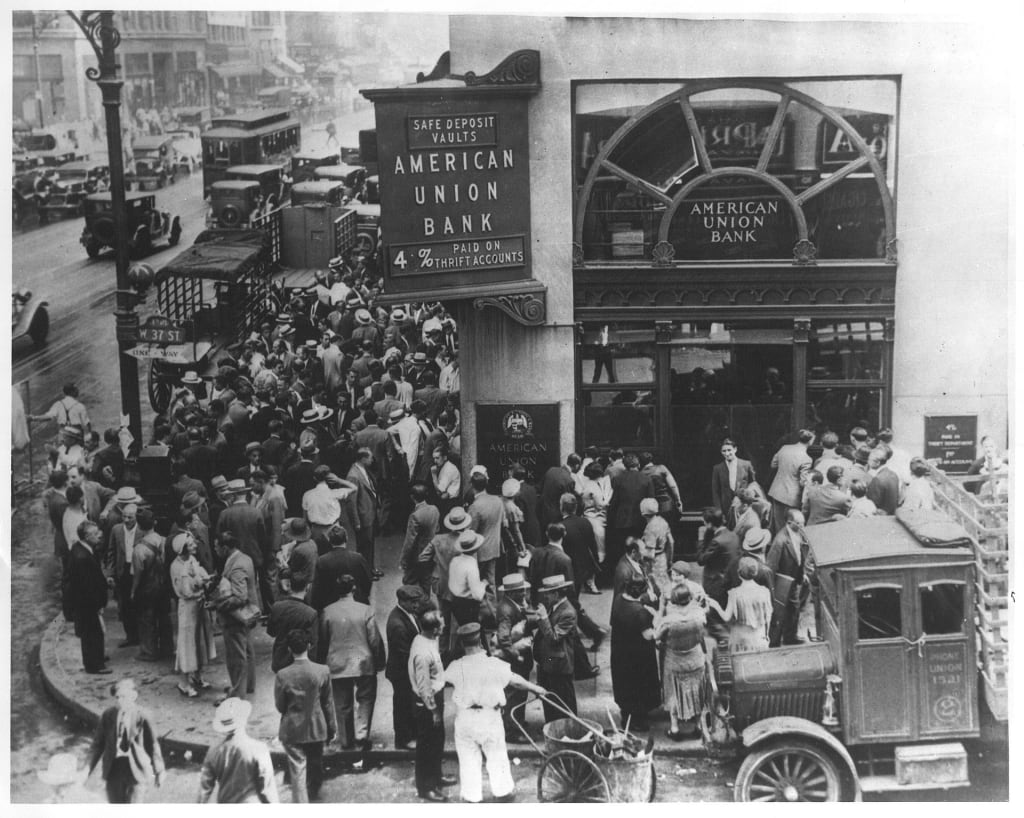When Banks Run Out Of Money
All about bank runs

Before the advent of modern finance houses, we had goldsmith banking in 17th century London. People offered their precious metal to goldsmiths for safe storage in exchange for a paper receipt.
When you needed your gold back, you would present this receipt to the goldsmith. At some point, the role of these gold workers evolved.
Among other things, goldsmiths found they could provide more valuable loans than the gold they had in stock (the birth of fractional reserve banking).
Only a fraction of the metal would be redeemed on any given day. Yet, if everyone rushed for their gold deposits at once, this understandably created chaos.
A few centuries later, banks had people running to them as fast as they could to withdraw their money, causing a phenomenon of a banking crisis.
So, what is a bank run?

A bank run (or run on the bank) is when a legion of clients withdraw funds from their bank simultaneously due to numerous fears relating to the institution’s future. A rumour or theory often triggers such an event that a bank may become insolvent.
As the run gains momentum, the likelihood of the bank running out of cash increases to the point of potential bankruptcy. In other cases, you may get ‘bank panics’ where multiple banks suffer runs simultaneously.
It’s a domino effect: when news of one bank failing becomes public, it can spook customers of nearby banks to draw out their cash as well.
Bank runs have occurred since the 17th century, going into the 21st century (especially during the Great Depression), the 2000s, and the 2010s. As recently as February 2022, Russian banks were removed from the SWIFT system during their invasion of Ukraine, causing pandemonium to their banking system.
Understanding how banks run out of money
Fear from a large group of customers is always the instigator of a bank run, coupled with a greater underlying banking financial problem. This includes recessions, liquidity issues, over-financing, emergency loans, or any other banking crisis.
In some cases, it may be pure speculation. In December 2011, the gossip on Twitter was that Swedbank and SEB, two Swiss-based banks, were experiencing ‘problems’ in Latvia. This was caused by unrelated events a few weeks prior that happened in the country.
In May 2019, a false rumour began circulating via a WhatsApp post that Metro Bank, a large publicly-listed UK entity, was going out of business due to falling share prices.
It’s common knowledge that banks generally don’t keep substantial funds in their branches. Yet, most are still required to have enough cash reserves by law in those rare cases where large withdrawals may occur at once.
Still, greater extremities may see a bank having to implement several mechanisms to lessen the impact by:
- Hiding information that could spark a bank run
- Artificially slowing the process by getting the friends or relatives of the employees to stand in line to make small transactions or briefly suspending withdrawals
- Implementing deposit insurance where each depositor is insured up to a certain amount
- Closing their branch for a period, preventing people from lining up outside
- Having a central bank act as a ‘lender of last resort.’ Here, the central bank promises to make short-term loans to the banks to honour their deposits.
How likely is a bank run nowadays?
What happens during a bank run isn’t always the classic depiction of a very long line of angry customers demanding withdrawals. Technology has, of course, allowed us to take out our money using phones and computers with relative ease.
Despite all the robust mechanisms in place, a run on the bank is still possible even nowadays.
This story was originally published on Medium.
About the Creator
Langa Ntuli
- fascinated by the financial markets & TradingView charts. Freelance writer @upwork (www.upwork.com/freelancers/langan)
Medium account: medium.com/@lihle_ntuli
Also a humble music nerd, football fan, knowledge hoarder, peace/love extremist.






Comments
There are no comments for this story
Be the first to respond and start the conversation.